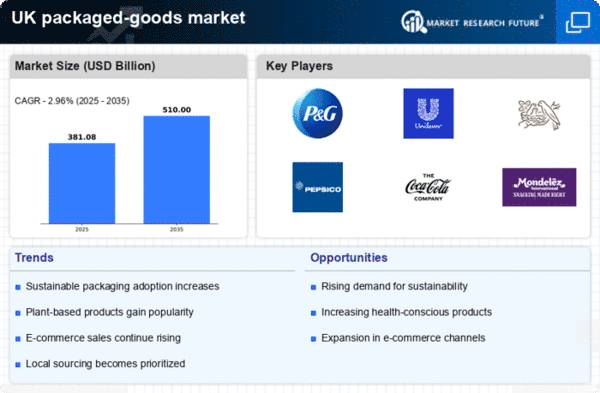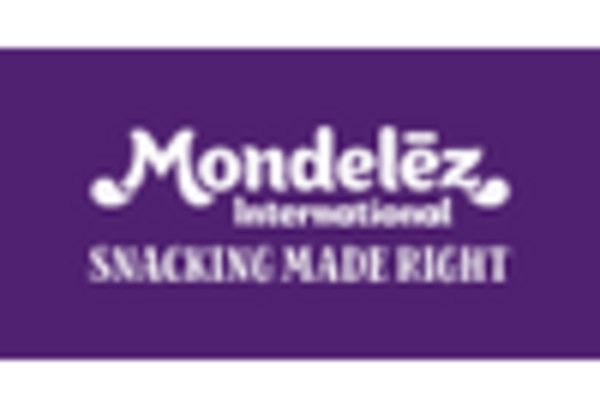Value for Money
In the current economic climate, consumers in the UK are increasingly focused on value for money, which serves as a crucial driver in the consumer packaged-goods market. With rising living costs, shoppers are more discerning about their purchases, seeking products that offer quality at competitive prices. This trend has led to a notable increase in private label brands, which have gained approximately 3.2% market share over the last year. Retailers are responding by enhancing their value propositions, offering promotions and discounts to attract price-sensitive consumers. Consequently, the consumer packaged-goods market is witnessing a shift where brands must balance quality and affordability to retain customer loyalty and market presence.
Health Consciousness
The rising awareness of health and wellness among consumers is a pivotal driver in the consumer packaged-goods market. As individuals increasingly prioritize nutrition and healthy lifestyles, there is a notable shift towards products that are organic, low in sugar, and free from artificial additives. In the UK, the demand for health-oriented products has surged, with sales of organic food items growing by approximately 7.1% in the last year. This trend compels manufacturers to innovate and reformulate their offerings to meet consumer expectations. thus, brands that align with health-conscious values are likely to gain a competitive edge. This shift not only influences product development but also marketing strategies, as companies strive to communicate their health benefits effectively.
Sustainability in Packaging
The growing concern for environmental sustainability is influencing packaging choices within the consumer packaged-goods market. Consumers are increasingly demanding eco-friendly packaging solutions, prompting brands to explore alternatives such as biodegradable materials and recyclable designs. Recent surveys indicate that approximately 65% of UK consumers prefer products with sustainable packaging, highlighting a significant shift in purchasing criteria. This trend compels manufacturers to rethink their packaging strategies, not only to meet consumer expectations but also to comply with regulatory pressures aimed at reducing plastic waste. Consequently, the consumer packaged-goods market is witnessing a transformation, where sustainability is becoming a core component of product development and brand identity.
Convenience and On-the-Go Solutions
The fast-paced lifestyle of consumers in the UK is driving the demand for convenience in the consumer packaged-goods market. Busy schedules lead to a preference for ready-to-eat meals, snack packs, and single-serve options that cater to on-the-go consumption. Recent data indicates that the convenience food sector has expanded by 5.4% over the past year, reflecting a significant shift in consumer purchasing behavior. This trend encourages brands to develop products that are not only easy to prepare but also portable, appealing to the needs of modern consumers. As a result, the market is increasingly characterized by innovative packaging solutions and product formats that enhance convenience.
Digital Engagement and Brand Loyalty
the integration of digital platforms into shopping experiences is reshaping how consumers interact with brands. As consumers increasingly engage with brands through social media and e-commerce platforms, companies are leveraging these channels to build loyalty and enhance customer relationships. Data suggests that brands with strong digital engagement strategies see a 20% higher retention rate compared to those that do not. This trend emphasizes the importance of creating compelling online content and personalized marketing campaigns to resonate with consumers. As a result, the consumer packaged-goods market is evolving, with brands that effectively utilize digital tools likely to foster deeper connections and drive repeat purchases.

















